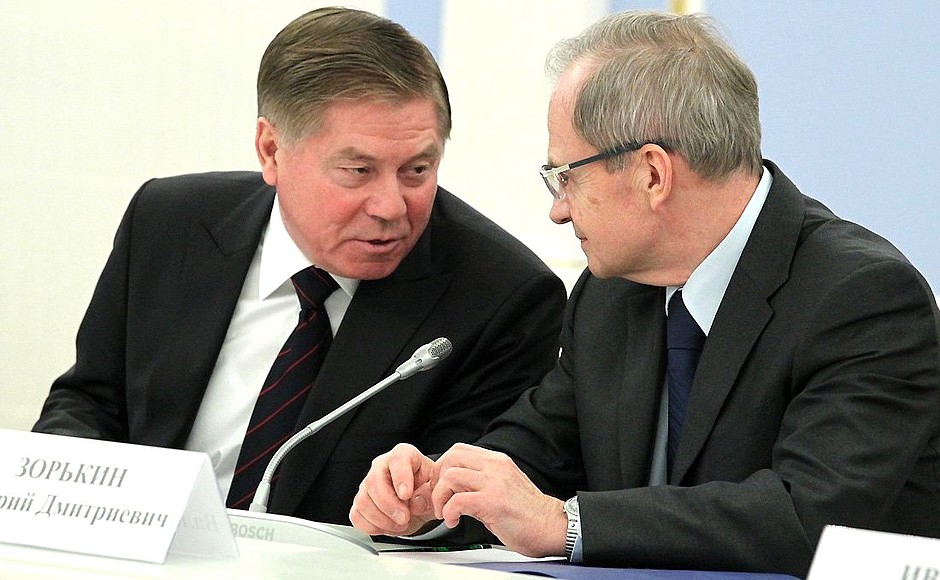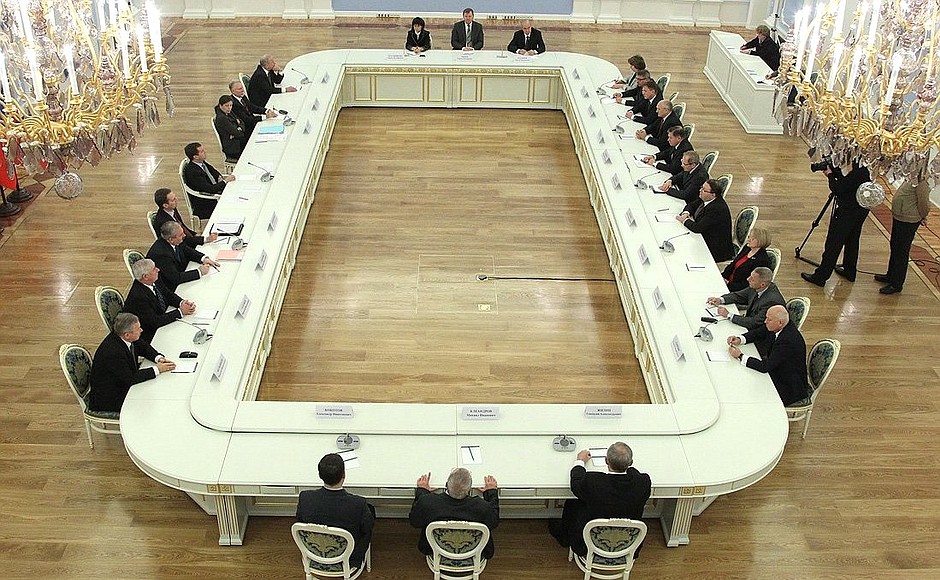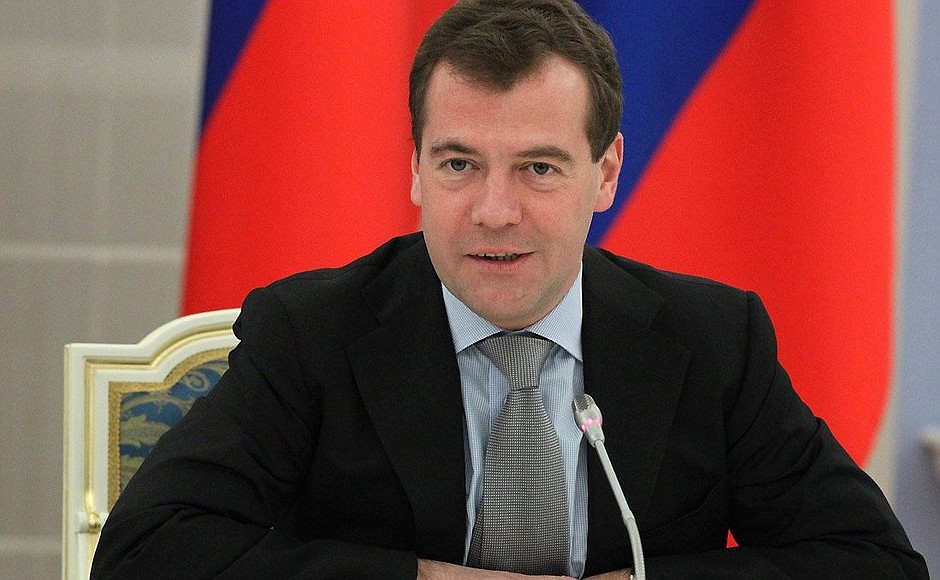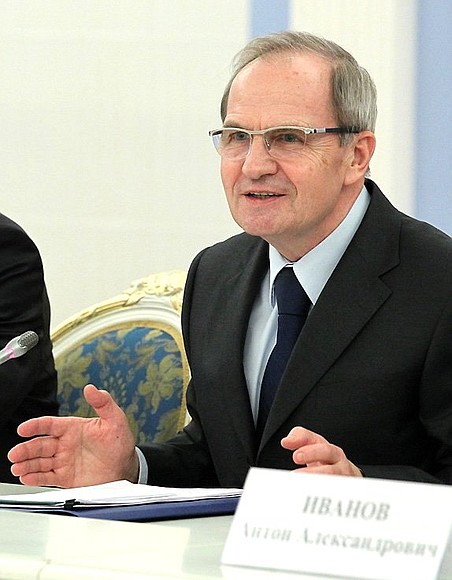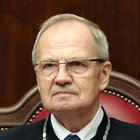President of the Constitutional Court Valery Zorkin briefed Dmitry Medvedev on the results of the Court’s work in 2010.
The President congratulated the judges on the forthcoming Constitution Day and 20 years of Constitutional Court’s successful work.
* * *
President of Russia Dmitry Medvedev: Good afternoon,
The country is about to mark Constitution Day, and on this occasion the President traditionally meets with the Constitutional Court judges.
There is no need really to talk about how important your work is as everyone in our country understands its importance now. There was debate at one point whether the Constitutional Court’s verdicts are a source of law.
”The decisions and explanations the Constitutional Court gives are unquestionably a source of law, with all the ensuing consequences.“
We like debating these kinds of questions in Russia. This is a historical tradition that dates back to the Soviet period. I think that everyone sees clearly today that the decisions and explanations the Constitutional Court gives are unquestionably a source of law, with all the ensuing consequences.
We have met in various formats over this year. We have met at the Kremlin, and I have visited you too. We have had productive discussions on various events and legal subjects. Of course, there are still many issues that you are addressing in your work.
I want to draw your attention today not to these various matters, but to the different stages in the Constitutional Court’s development, because we will soon be marking the court’s 20th anniversary. I have already signed the resolution on this event. A number of academic and practical events are set to take place over the coming year, and at the end of this time we will meet again and celebrate this anniversary.
I think this is a good opportunity for us to reflect in general on the national Constitution’s place in our legal system, on how much we have managed to make reality the things we spoke about in the 1990s, whether the Constitution is a law with direct effect today, or whether there are problems in its direct implementation, the way the judicial community and civil society in general perceives the Constitutional Court decisions, how these resolutions are actually implemented, and how well organised is the mechanism of transforming the Constitutional Court’s rulings into subsequent judicial practices in the other courts and in the executive power system in general.
In other words, we have a whole range of topics that require our attention, especially in reviewing the results of the efforts made over these last 20 years.
The Constitutional Court is not some kind of frozen scheme, but rather is constantly in the process of improving its performance. This year too, amendments have been made to legal provisions concerning the Constitutional Court. I believe that all of this work we do – and this is always concerted and coordinated work – are positive and important steps for ensuring our country’s legal stability. All of these steps aim at strengthening the Constitutional Court’s authority and giving it the place it deserves within our national system of governance.
We are not indifferent to the way other countries view our laws and our system. These are matters we discuss frequently.
We work together actively with our foreign partners and our cooperation is very practical in nature, including our cooperation with the European institutions and the European Court of Justice.
”The Constitutional Court is not some kind of frozen scheme, but rather is constantly in the process of improving its performance, and numerous amendments have been made to legal provisions concerning the Constitutional Court.“
We have achieved much in this respect. There are positive things ultimately aimed at protecting our citizens’ lawful rights and interests. There are also problems that we too raise from time to time, including basic issues such as the balance between state sovereignty on the one hand and supranational bodies’ powers, including those of courts, on the other hand. Our world today has become a lot more sophisticated compared to what it was in times of international law doctrine of the past, when international institutions were less well developed.
In my view, now we need at the very least to examine the various international judicial bodies’ powers and how they balance out with national legal doctrine, practice, and the state power system. This is something we discuss openly with our European colleagues. Obviously, we should preserve the possibilities this system offers today for protecting our citizens’ interests, but at the same time, our biggest priority is to strengthen not international but national guarantees, which is fully in keeping with the doctrine of state sovereignty, even taking into account the globalisation of international affairs and law.
I assume it is therefore important for the Constitutional Court to keep its attention on this issue too. I have discussed it on many occasions with Mr Zorkin, President of the Constitutional Court, and perhaps we could give it some time today too.
* * *
This is a seemingly theoretical issue, but lately I have not had so many opportunities to discuss this subject with my lawyer colleagues, and I sometimes miss these discussions. Of course, this theoretical issue has very practical implications in terms of the extent of the European Court’s powers and whether the European Court or any international court in general can change national legislation.
I think that our cooperation with our foreign partners and the European institutions should above all be determined by the scope of competence we have delegated to the European Court [of Justice] when concluding the relevant agreements and signing the relevant laws.
But as I see it, we have never handed over any part of sovereignty that would give any international or foreign court the right to make decisions changing our national legislation. Many European countries much more closely integrated into European institutions follow this same principle.
”When our legal system was in an unpolished state, I often wondered myself if the Constitutional Court would survive and its decisions would be sufficiently realistic and enforceable, but the court's 20 years of work have dispelled any doubts.“
This is a subject that requires further study, further discussions with our European partners. In some cases this is something of great significance for our country, and something we cannot close our eyes to. I hope that the Constitutional Court judges and the Supreme Court and Supreme Arbitration Court presidents present today understand my position as President of the country and guarantor of our Constitution. These are things we must react to.
These are international issues really, and they are important of course, but the everyday work, which the Constitutional Court carries out very conscientiously, is even more important.
I remember the unpolished state our legal system was in 20 years ago, the various discussions, and the many leaps and changes in our laws. I often wondered then if the Constitutional Court would survive and find its place in our country, if our people would accept it, and its decisions would be sufficiently realistic and enforceable.
These resolutions are being enforced, and the court’s 20 years of work have dispelled any doubts. I therefore congratulate you all once more on the upcoming Constitution Day.
<…>
